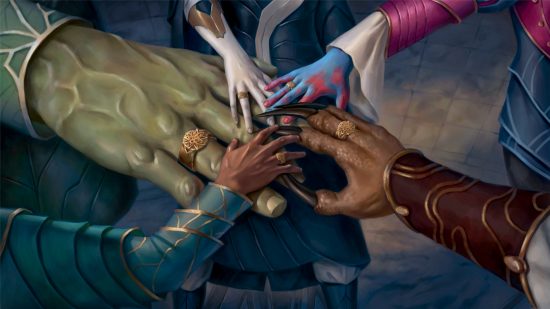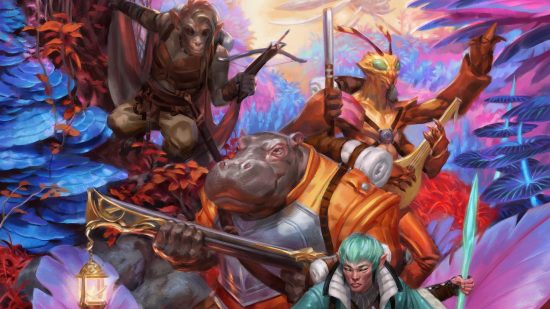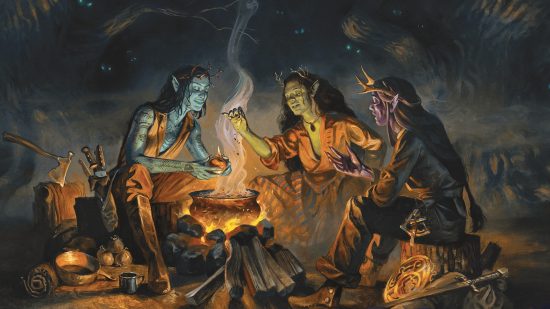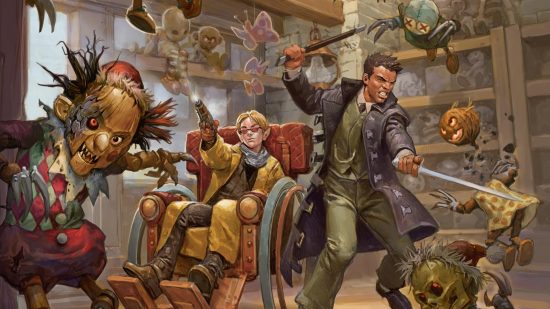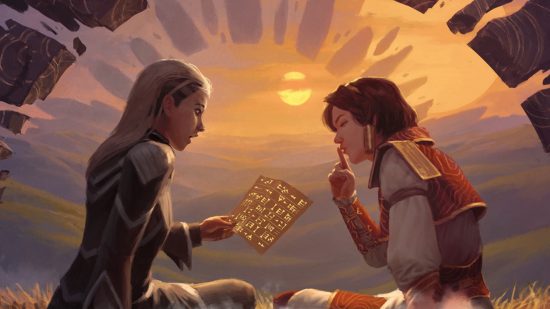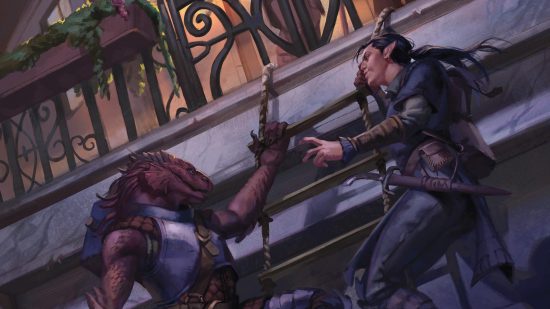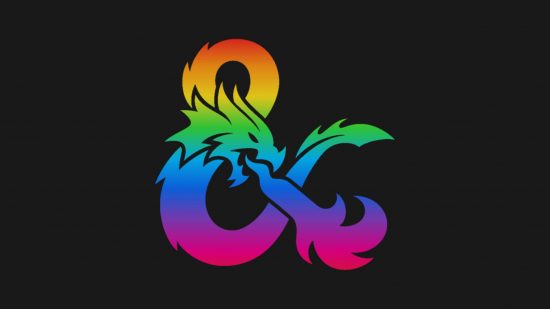Tabletop RPGs like DnD are currently enjoying an unprecedented level of popularity. With the likes of Critical Role, Dimension 20, and the D&D Movie, DnD and other tabletop RPGs have never been more mainstream. The hobby is wide open to represent the queer experience of LGBTQ+ people; and because of the nature of the medium, it’s going to stay that way.
The reasons why read like a rundown of the features that make tabletop games themselves unique. Tabletop, with its unique combination of unparalleled creativity, the multiplicity of its storytelling, and the collaborative experience it creates, holds all the perfect ingredients to make it a permanent haven for us and other underrepresented minorities.
When you’re handed a book, you read the book. When you’re handed a video game, you play within the bounds of its programming unless you want to spend months learning modding. When you’re handed a tabletop RPG, you’re expected to tear it apart and fit it to your table.
The concept of “homebrew” is deeply entwined with the history of the hobby, driving its growth and innovation. There’s a reason WotC ruffled feathers by threatening to revoke the OGL – on top of the impact on smaller creators, it goes against the spirit of the hobby at its core. Nobody at the player and GM level wants groups to have less options to customize their experience!
At the game table, every aspect of the characters and world are open to change for the group, free of centralized control. The freedom to pick your DnD Class and DnD Race, the freedom to “be anything you want” is often used to play something you aren’t, but many use it a different way. Many use it to play what they are. LGBTQ+ players have unprecedented freedom of creativity to represent themselves in a like-minded group.
This freedom of expression means that more stories are being told by more queer people about queer experiences. And, because of the fractious nature of tabletop, with every table telling its own stories, this means that we have a place, even a small one, where our tales will be told and heard.
We’re free to create story after story about gay and bi heroes, trans heroes, heroes whose specific experiences are hard to give labels, making them the main characters for once. Characters who make impactful decisions, whose feelings and experiences matter, characters that are admirable or flawed or both, not sanitized for mass consumption or demonized to make a strawman.
Not only that, but in an even more specific quirk of the medium, bringing a queer character to pre-written content with no queer content can make it a queer story. Any module, any adventure path, any written piece of content can become a story about being LGBTQ+ simply by a player bringing their gender nonconforming Dwarf Fighter 5e. They’re on equal footing with any other possible way to play.
It’s always been this way – and it’s a staple of D&D in particular, a game that has historically seen a huge proportion of its play in groups adapting its modules and adventures to tell their own stories.
These two things on their own would make a fun solo storytelling exercise – after all, it’s nothing new to write fanfiction or enjoy a world on your own terms. The chemical X that turns this into a community is, well, just that. Community.
The vast majority of Tabletop RPGs are mandatory social experiences. People meet each other and bond over adventures at the table. Friends are made. Ideas are spread. In times when the fight is hard and we’re not accepted, we band together in groups and share community there.
In times where we feel more open, we game openly with others and hopefully spread our stories and tolerance in the wider hobby. Either way, LGBTQ+ people have always been here and will always be here in this place where we can be the heroes of our own stories.
Queer experiences will always form a part of the base of the hobby, too. Explicitly or not, we have always been contributing to the writing, art, and game design that everyone goes on to enjoy together. That’s not even getting into the landscape of the Indie TTRPG boom, which is much more openly and broadly queer.
Crucially, none of this can be taken away. It’s all baked into what makes tabletop RPGs the experience they are; none of these factors can truly be erased without changing the landscape for the worse for everyone, or making it a completely different medium.
The doors of TTRPG will not be closed, and cannot be closed to us. All you need to play a tabletop RPG is your friends, some dice (not even!), some rules, and your collective imaginations, and you’re there.
We’re already there, playing, writing, and creating to our hearts’ contents. And whether we’re visible or not, we will always be there. See you there. I’m looking forward to playing with you.
Wargamer has a handy guide if you’d like to learn how to play Dungeons and Dragons, as well as a guide to the best Dungeons and Dragons board games if you love the theme but don’t want to dive into the TTRPG experience just yet.
